Bespoken Word: Caped Crusaders — why the Cape Epic is a must-watch race
Guy Kesteven got hooked on the coverage of the legendary Absa Cape Epic MTB stage race in South Africa last year and he reckons you’ll love it to, no matter what sort of riding you’re into
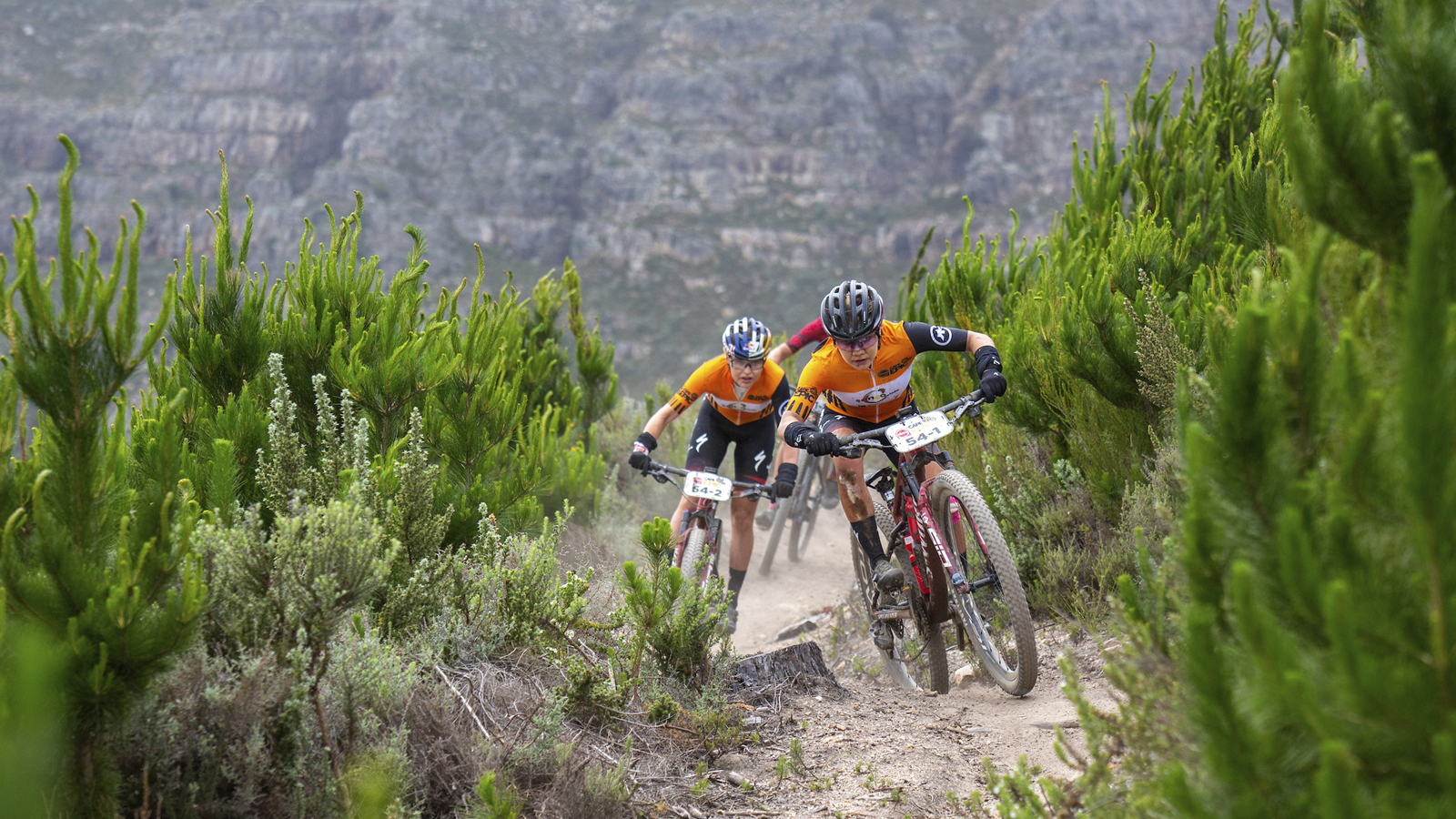
I’d been aware of the Absa Cape Epic MTB stage race for decades, but it’d never grabbed my interest. The few images that appeared in general MTB media in the UK were of tortured souls trapped in an alien dust cloud on the far side of the world. Not just the geographical world either, the nose-to-tail pain procession across an arid landscape looked a world away from anything I had ever experienced and – while I have my masochistic moments – anything I ever wanted to experience.
However, chatting to our South African tech editor Aaron about his multiple Cape Epic adventures made me realize there was far more to the event than a savage, safari-themed team time trial. Interest stirred – and on Aaron’s recommendation – I tuned into the first of the live YouTube broadcasts of the 2021 edition and suddenly the genuine EPICNESS of the Cape Epic became vividly clear.
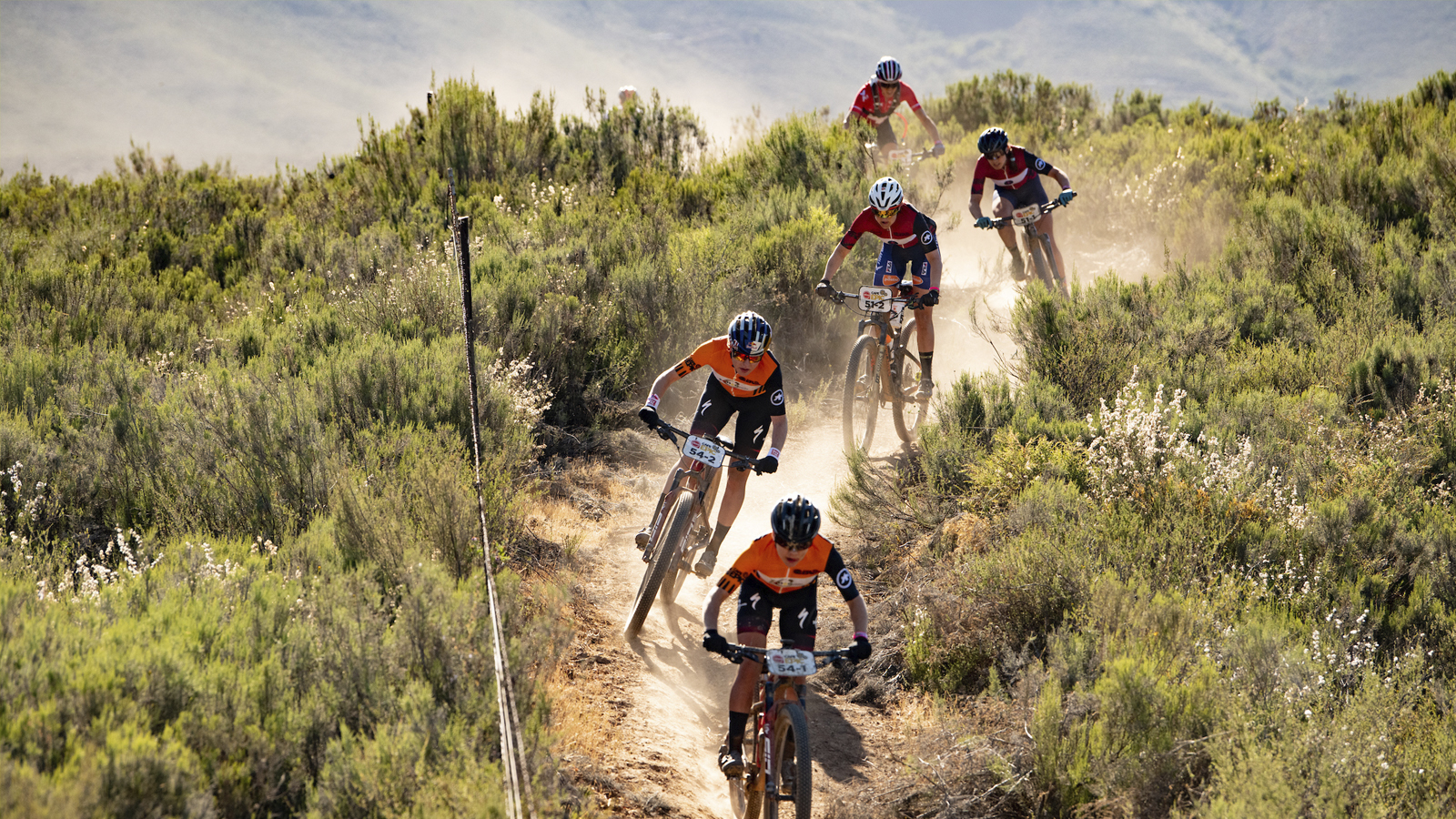
The basic stats of nearly 700km of racing and 17,250m of climbing over eight days are pretty impressive. Especially when you realize the first-day Prologue is normally a lot shorter and you can expect at least a couple of the stages to push beyond 100km. The course is changed every year and kept a very closely guarded secret until a big reveal in December. Like any great road stage race (the Cape Epic is the only MTB stage race to get an “hors categorie“ – so difficult it can’t be categorized by normal standards – rating from the UCI) there are classic sections and stages that are included on a regular basis.
And watching the excellent race footage (according to the Absa Epic team it’s the most televised MTB race in the world) for the first time completely overturned my perception of the trails the event used. While Santa Cruz may have famously launched its Tallboy with a video of Greg Minaar short-cutting across rocky outcrops and rad drops to catch the lead group up after he overslept in his tent, the actual race trails are also seriously spicy in places. Not just that, but the technical climbs and epic twisting singletrack descents are as breathtakingly long as mountain stages in the Tour De France.
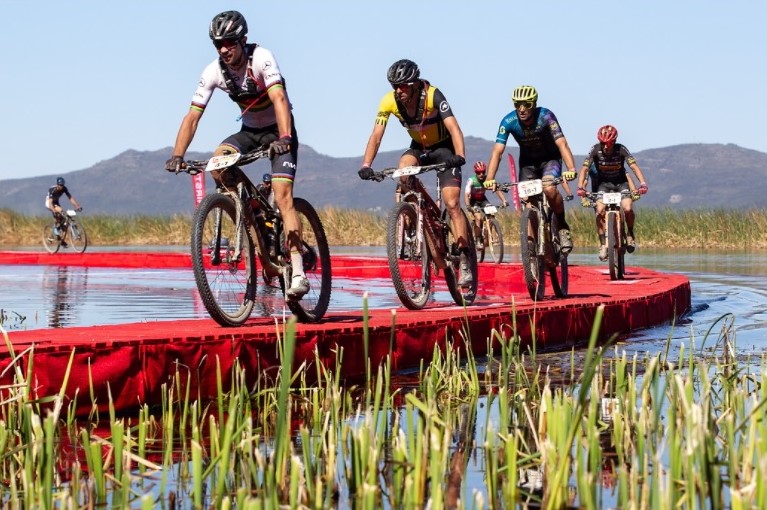
It’s not just technical difficulty that the teams of two have to contend with either. The extreme heat and dryness of South African deserts will be a hard ask for anyone from more temperate climbs to tolerate (European elite riders often go out several weeks early to acclimatize). However when it rains – as it did on a couple of stages last year – that same surface turns into hyper-abrasive paste that not only kills speed but wipes out even the best MTB brake pads in a few hours. While there’s a full bike-cleaning team and several workshop areas, plus pro teams bring their own pit crews, out on the trail the teams have to be totally self-sufficient.
As the time for each day is recorded on the slowest rider from each two-person team, that can lead to some amazing camaraderie and co-operation whether pairings are trying to hang onto a podium spot or just hang on to the finish. Even when things are clearly going very well, there’s something really satisfying about two riders working together seamlessly towards a shared goal and hands held aloft finish line celebrations are a signature shot of the Cape Epic.
While the sheer physicality of the race – and a near $7,000 entry fee before you even start thinking of getting there, what equipment you need and staying either side of the event to prepare and recover – means only real enthusiasts turn up, there’s still a very wide range of riders. That often includes some of the best pros in the world pitting themselves against local stage race specialists or have-a-go heroes trying to tick off the ultimate bucket list XC race without kicking the bucket in the process. Heat, incorrect nutrition / hydration, exhaustion, crashes as fatigue creeps in or just from the sheer technicality of the terrain means that’s a genuine risk too. No surprise, then, that there’s a fully equipped field hospital at the overnight camp that leapfrogs ahead of the racers at each stage.
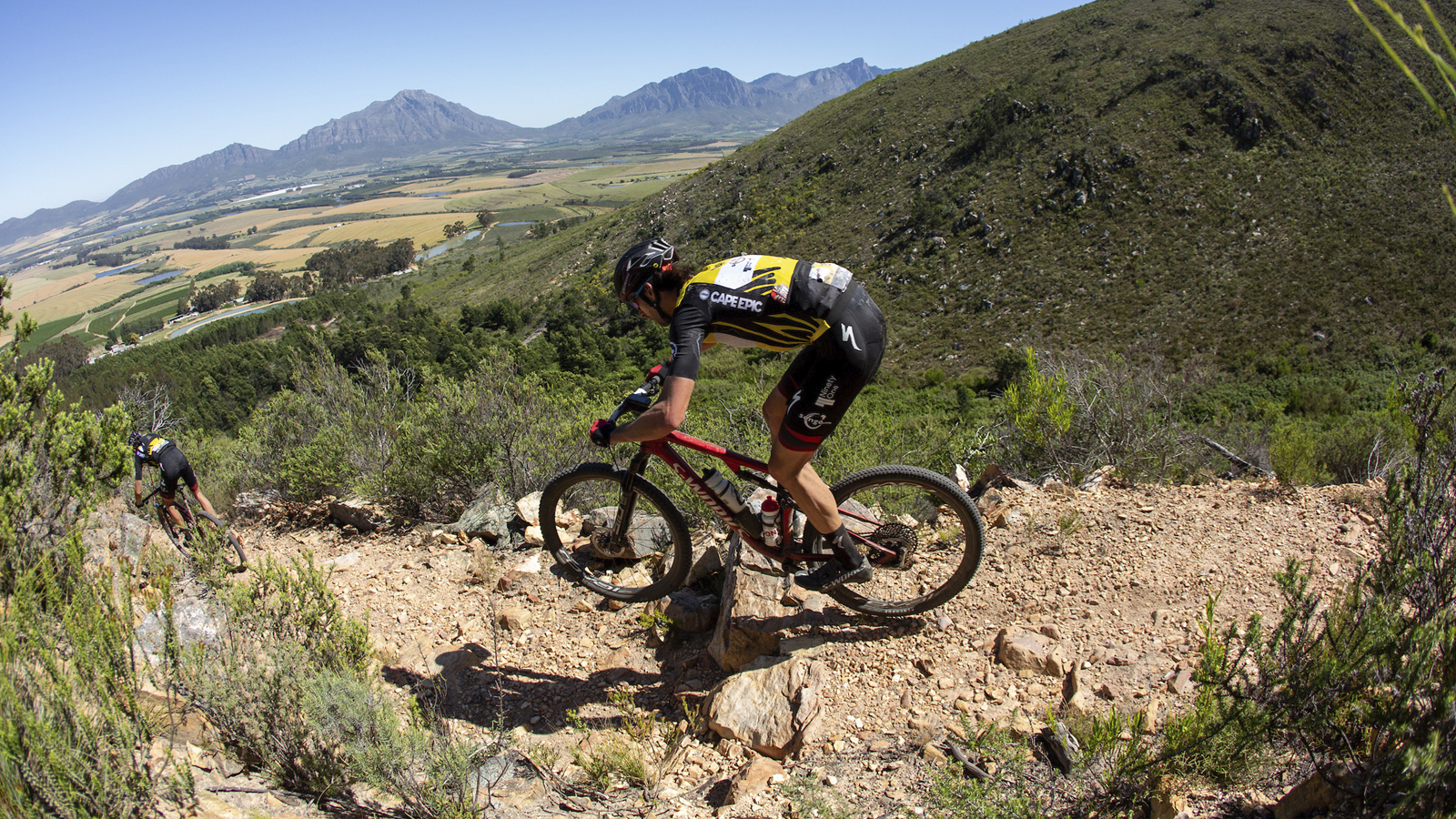
It’s not just medical support, either. Racers have their bikes taken off them to be washed and lubed as soon as they cross the line, and while they might be extinct on the UK high street, Woolworths is going strong as the finish-line recovery snack supplier. There are mobile shower blocks, masseurs and physiotherapists on hand for all riders too, so they can crawl into their individual, ready-erected red tents each night with a better chance of emerging with enough energy to tackle the next stage the following morning. This travelling circus has visited over 40 different towns over the years, providing a welcome injection of concentrated cash but also a legacy of rider recognition that can be a massive local economy boost for otherwise remote communities.
And while tackling the race yourself and visiting these places for real is obviously the ultimate way to experience the Absa Cape Epic, the YouTube coverage available now was certainly enough to get me hooked. It’s not just the incredible – and surprisingly varied – landscape either. The team of commentators are mostly super-experienced ex racers, and often race winners, whose insight adds addictive depth to the drama unfolding on screen. They’re backed up by other riders, and often ex-racers, on (presumably derestricted) e-bikes, whose bodycam coverage and breathless commentary put you right in the thick of the action as they trail the lead groups flat out through every twisting, turning, rocky, sandy gully, mountain pass or vineyard maze. Considering the remoteness of some of the areas, the broadcast quality from helicopters and drones is exceptional too, and that really brings home how full-on the racing is.
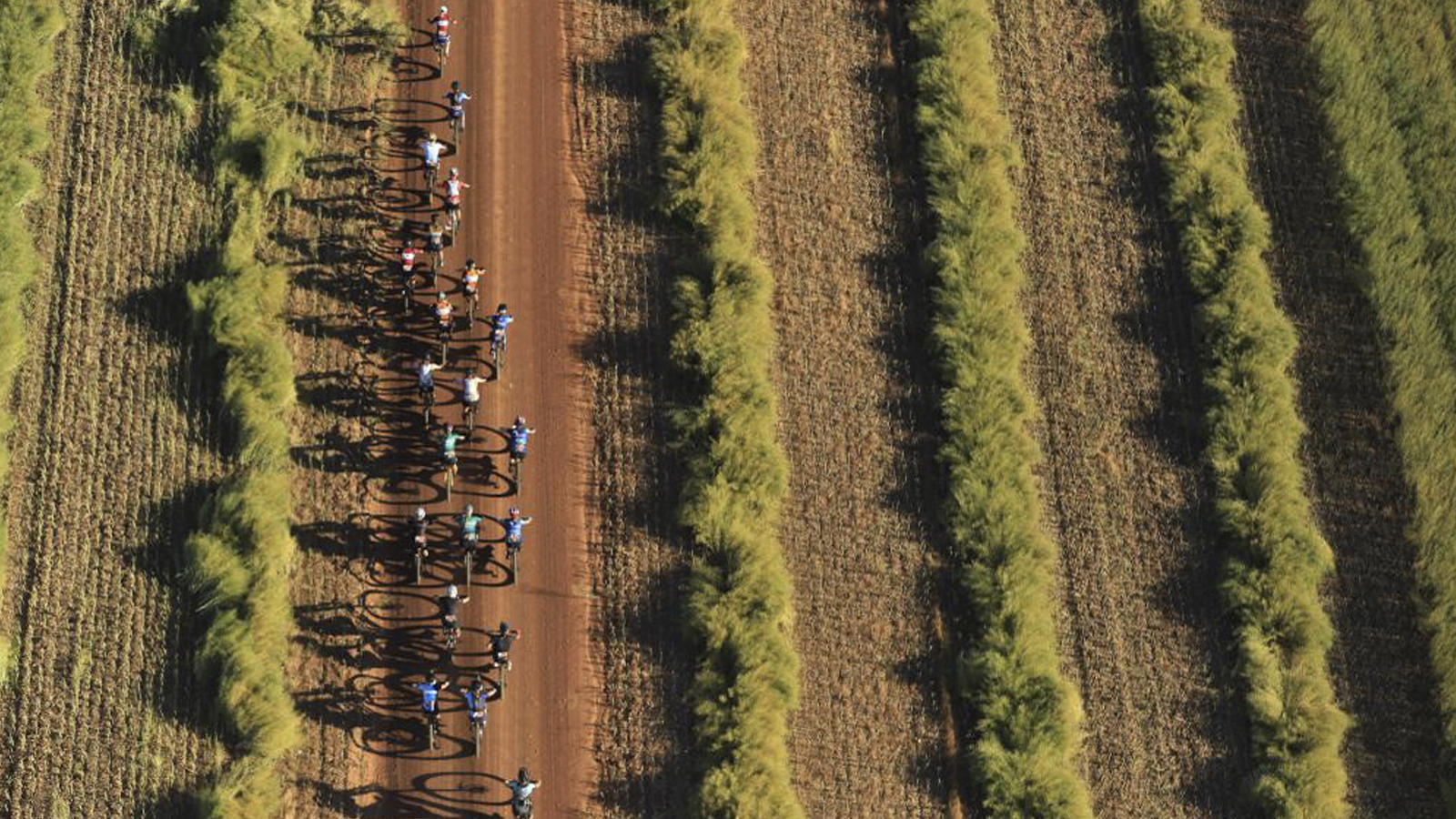
While most stages take several hours for even the fastest riders, the pace seems more appropriate for the 20-minute frenzy of a World Cup XCO short track. The racing is often just as close too, with every meter gap opened and the speed at which it’s closed, or even just singular dabs or slide-outs on corners making a massive difference as teams try and find any advantage. Unlike road racing where you know the only really relevant action is likely to be in the last quarter of the race, the Cape Epic teams are on the attack from the get-go. And while you will sometimes get a massively dominant pairing in one category – the women’s team were a classic example of this in 2021 – you’ll often find top placings being decided on Day Eight by the results of sprint finishes and scant second gains along the way.
And while I’ll definitely be tuning in from the gun to the final chequered flag this time around, what’s really starting to itch is the thought of maybe entering myself one day. Not with any thought of being competitive – the motorbike-like speeds of the top racers even in older age groups is terrifying – but because it really does look like an incredible and truly epic experience.
For now though, make sure you read Aaron’s primer on the event when it gets published tomorrow, and then regular race updates, tech insights and bike checks on the top race rigs from the event here on Bike Perfect as the event unfolds next week. And I’d really recommend you read those checks too, as I certainly learned some really useful hacks when it came to distance / disaster proofing and which I’ve started using myself.
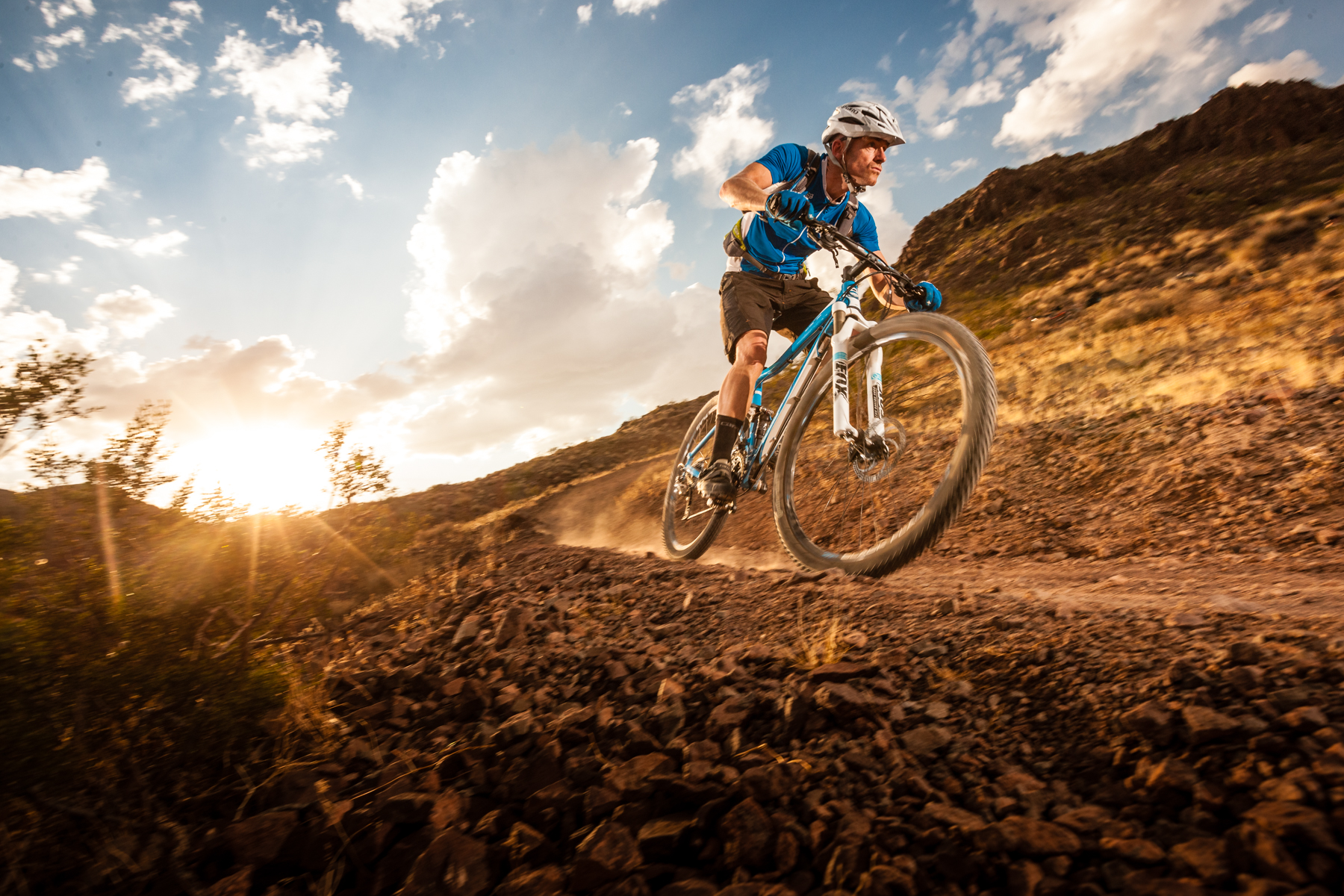
Guy Kesteven has been working on Bike Perfect since its launch in 2019. He started writing and testing for bike mags in 1996. Since then he’s written several million words about several thousand test bikes and a ridiculous amount of riding gear. He’s also penned a handful of bike-related books and he reviews MTBs over on YouTube.
Current rides: Cervelo ZFS-5, Specialized Chisel, custom Nicolai enduro tandem, Landescape/Swallow custom gravel tandem
Height: 180cm
Weight: 69kg
